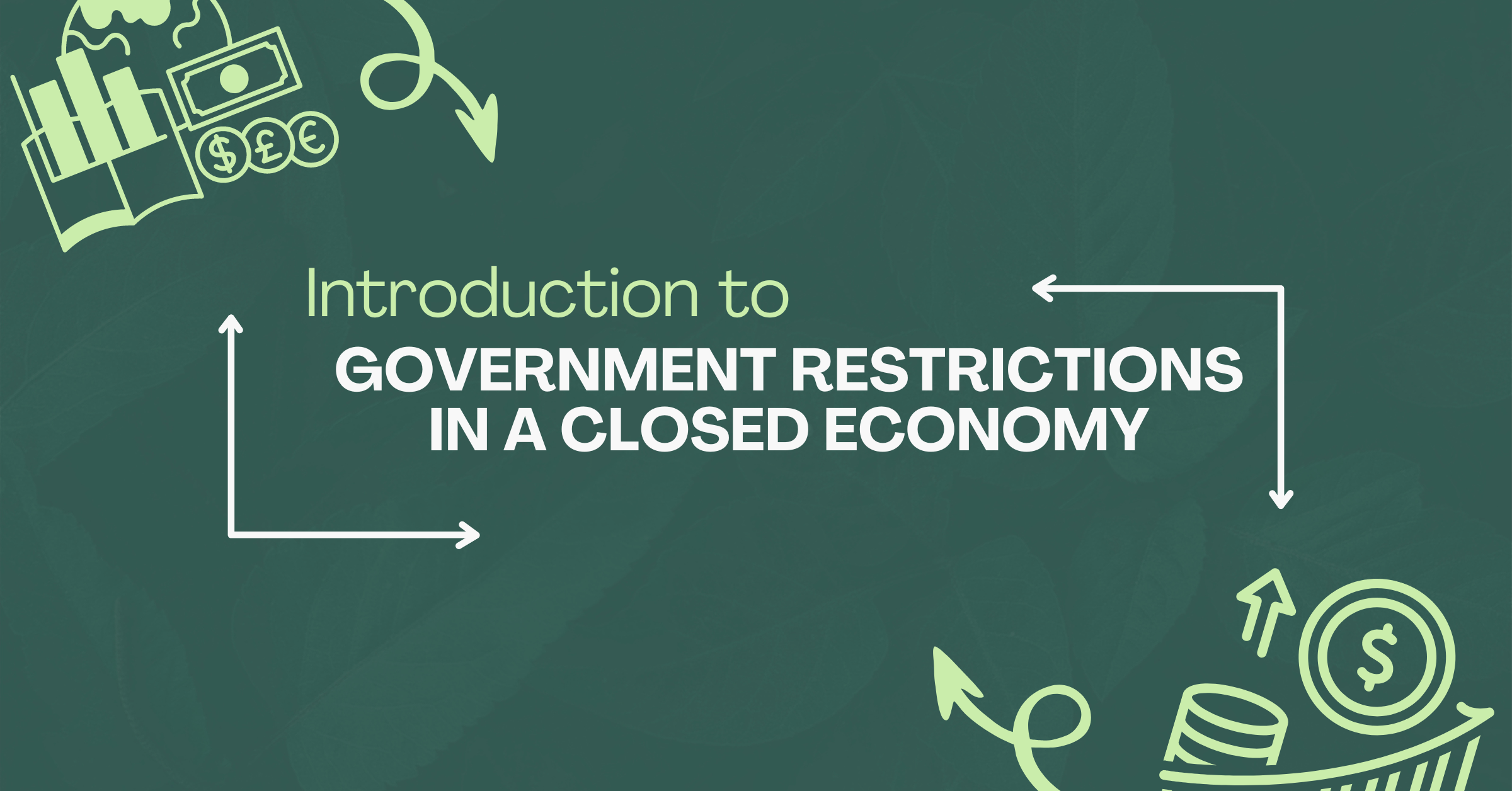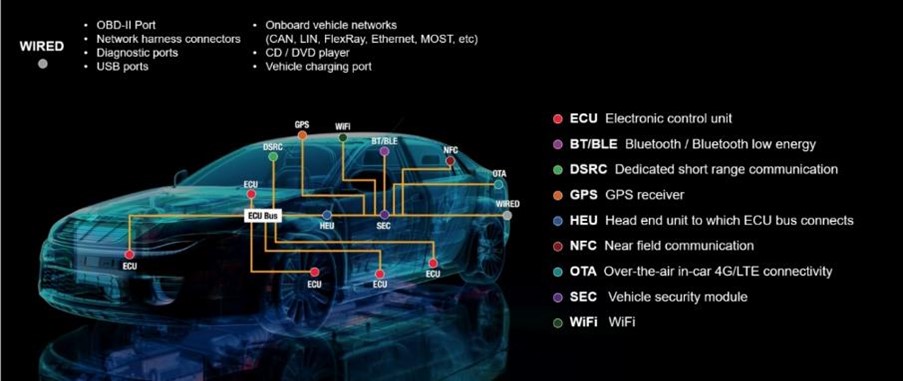In a closed economy, the government plays a central role in regulating economic activities. But what restrictions would the government impose in a closed economy? This is a question that involves understanding various controls, laws, and policies designed to manage resources. The government’s aim is to promote internal growth and reduce dependence on foreign economies. By exploring these restrictions, we can understand how a closed economy operates and the impact of these rules on economic growth, trade, and development.
In this article, we will dive deep into the restrictions the government imposes in a closed economy. We’ll discuss key policies, the reasons behind them, and how they shape the economy. Let’s begin by defining a closed economy and how it differs from an open economy.
What is a Closed Economy?
A closed economy is an economic system that does not engage in international trade. The country is entirely self-sufficient, meaning it produces everything it needs within its borders. There are no imports or exports, and the government ensures that domestic industries meet the needs of the population.
In contrast, an open economy actively trades with other countries, allowing imports and exports to flow freely. A closed economy restricts this trade to maintain control over domestic industries. But what specific restrictions are involved?
1. Trade Restrictions
The most obvious restriction in a closed economy is the ban on international trade. The government ensures that no goods or services are imported or exported. This policy protects domestic industries from foreign competition, allowing them to grow without interference from foreign markets.
In a closed economy, all resources must come from within the country. The government imposes strict tariffs and quotas to prevent illegal trading activities. Tariffs are taxes on imported goods, while quotas limit the number of goods that can be brought into the country. However, in a fully closed economy, these are unnecessary because no trade occurs.
Why Restrict Trade?
The reason behind restricting trade is to protect local industries. Foreign competition can weaken domestic businesses, leading to job losses and economic instability. By preventing imports, the government supports local production and ensures that domestic companies thrive.
2. Currency Controls
Closed economy, the government also imposes strict currency controls. Since there is no foreign trade, there is no need for foreign currency. The government restricts the use of foreign currencies, ensuring that only the national currency circulates within the economy.
Foreign exchange transactions are banned, and individuals or companies cannot hold foreign currencies. These controls are important in maintaining the value of the national currency and preventing inflation caused by external factors.
Why Impose Currency Controls?
Currency controls help the government maintain economic stability. By limiting access to foreign currencies, the country reduces its exposure to external financial risks. This also prevents capital flight, where money leaves the country in search of better returns abroad.
3. Import Substitution Policies
Since a closed economy does not rely on imports, the government often promotes import substitution policies. These policies encourage the production of goods that would otherwise be imported. The government supports local industries by providing subsidies, tax breaks, and other incentives to boost domestic production.
For example, if a country previously imported cars, the government would invest in local car manufacturing to meet domestic demand. This helps create jobs, reduces the need for foreign products, and supports economic independence.
Why Promote Import Substitution?
Import substitution policies reduce reliance on foreign goods. By developing local industries, the country can meet its needs without depending on external markets. This strengthens the economy and promotes self-sufficiency.
4. Price Controls
The government often imposes price controls to ensure that essential goods are affordable for the population. In a closed economy, there is a risk of shortages, especially if domestic production cannot meet demand. To prevent price hikes, the government may set maximum prices for goods such as food, fuel, and medicine.
Price controls help maintain social stability by ensuring that basic necessities are accessible to everyone. However, price controls can also lead to problems, such as black markets, where goods are sold at higher prices than the government allows.
Why Use Price Controls?
Price controls are used to protect consumers from exploitation. In times of shortage, prices tend to rise. The government intervenes to ensure that people can still afford essential goods. This policy is crucial in maintaining public order and preventing social unrest.
5. Government Control of Key Industries
In a closed economy, the government often takes control of key industries. These industries are considered vital to the country’s economic security. They include sectors such as energy, transportation, and telecommunications.
By controlling these industries, the government ensures that they operate efficiently and serve the public interest. The government sets production goals, manages pricing, and ensures that these industries contribute to the overall economic plan.
Why Control Key Industries?
Controlling key industries allows the government to direct economic activity toward national goals. It ensures that vital services and resources are available to everyone, regardless of their income level. Government control also prevents private monopolies from exploiting these essential sectors.
6. Limited Consumer Choices
In a closed economy, consumer choices are often limited. Since the country does not trade with the outside world, the variety of goods available to consumers is restricted to what can be produced domestically. This can lead to shortages of certain products and a lack of diversity in available goods.
For example, consumers may only have access to one brand of a particular product. In some cases, the quality of domestic products may not match international standards. However, the government tries to ensure that basic needs are met, even if choices are limited.
Why Limit Consumer Choices?
Limiting consumer choices is a consequence of self-reliance. Since there is no trade with other countries, the domestic market has to provide all goods and services. This can be seen as a sacrifice for the greater good of national economic independence.
7. Strict Labor Market Regulations
The government imposes strict regulations on the labor market to ensure employment for its citizens. In a closed economy, job creation is a priority, and the government may implement policies that mandate hiring local workers over foreign ones. The government may also control wages to prevent inflation and ensure that wages are fair across all sectors.
Additionally, labor unions may be controlled or heavily regulated by the state to ensure that they align with national economic goals.
Why Regulate the Labor Market?
Regulating the labor market ensures that employment levels remain stable. By controlling wages and hiring practices, the government can prevent unemployment and keep the economy running smoothly. It also ensures that workers are not exploited by private companies.
8. Restrictions on Foreign Investments
In a closed economy, foreign investments are either heavily restricted or completely banned. The government aims to protect domestic businesses from foreign influence and ensure that profits remain within the country.
Foreign companies are not allowed to own or operate businesses within the country. This restriction helps maintain control over key industries and prevents foreign investors from taking profits out of the country.
Why Restrict Foreign Investments?
By restricting foreign investments, the government ensures that all economic benefits stay within the country. This reduces the risk of foreign exploitation and ensures that national industries grow without external interference.
9. Self-Sufficiency in Agriculture
The government in a closed economy often places a strong emphasis on self-sufficiency in agriculture. It promotes policies that encourage domestic food production to meet the needs of the population. This may involve subsidies for farmers, investments in agricultural infrastructure, and research into better farming techniques.
Agriculture is a critical sector in any closed economy, as it provides food security. The government works to ensure that the country can produce enough food to sustain its population without relying on imports.

Why Focus on Agricultural Self-Sufficiency?
Food security is a top priority in a closed economy. By focusing on agricultural self-sufficiency, the government ensures that the country can feed its population even in times of crisis. This reduces dependence on foreign food supplies and protects the country from external shocks.
10. Heavy Taxation on Luxury Goods
To maintain economic stability, the government in a closed economy may impose heavy taxes on luxury goods. Since the focus is on producing essential goods, luxury items are considered non-essential. These taxes discourage the production and consumption of luxury products, directing resources toward more critical needs.
For example, luxury cars, jewelry, and high-end electronics may be subject to higher taxes. This policy helps to allocate resources toward industries that are vital for the country’s development.
Why Tax Luxury Goods?
Taxing luxury goods helps the government prioritize essential industries. By discouraging the production of non-essential items, the country can focus on producing goods that benefit the majority of the population. It also ensures that wealth is distributed more evenly.
Conclusion
A closed economy is one that relies solely on its internal resources and does not engage in international trade. To maintain control over its economy, the government imposes a variety of restrictions, from banning foreign trade to controlling key industries. These restrictions are designed to promote self-sufficiency, protect domestic industries, and ensure economic stability.
While these policies can promote national growth, they also come with challenges such as limited consumer choices, price controls, and restricted foreign investments. The government must carefully balance these restrictions to ensure that the economy remains stable and prosperous. By understanding these policies, we gain insight into how a closed economy operates and the rationale behind government intervention.





